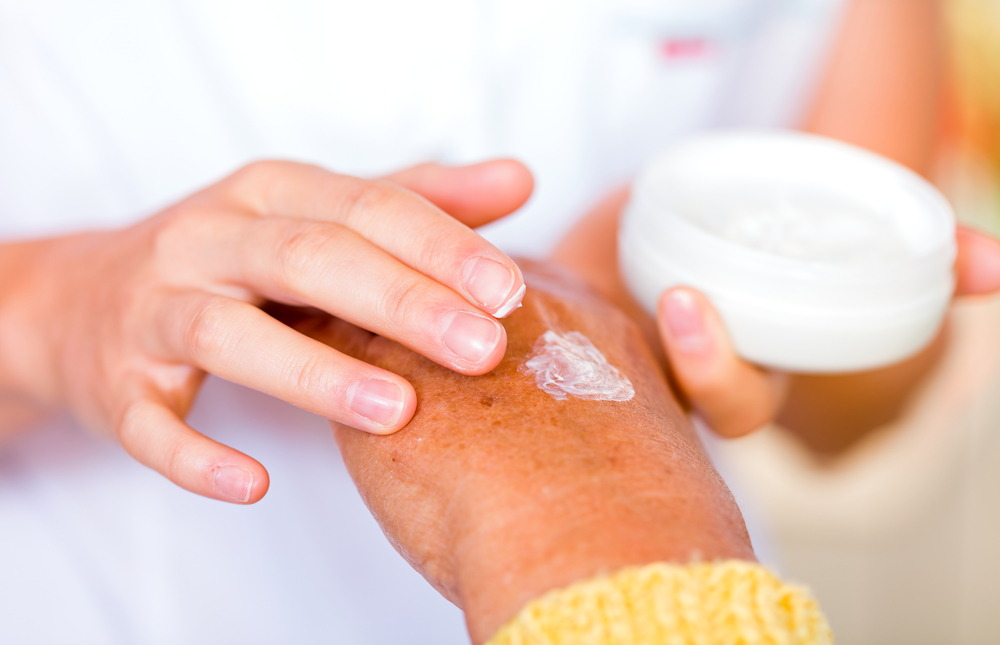- HOME
- SERVICES
- WHERE TO BEGIN
- LOCATIONS
- RESOURCES
- HEALTH PLAN SERVICES
- CAREERS
- EMPLOYEES

Top 3 Skin Care Tips for Winter
Winter’s cold and harsh winds can leave skin dry and chapped. Keeping skin healthy even in the toughest weather is possible with a few key steps. And the Premier Home Health Care Services, Inc. team can help clients follow these tips and keep skin dryness at bay.
- Hydrate
Skin needs to be kept hydrated. This can be a challenge in the winter, as we spend time indoors with the heat turned up and the air can become very dry. Humidifiers can help. Running a humidifier can keep the home’s air moist and prevent skin from drying out. The Premier team can ensure that humidifiers are cleaned and maintained properly and monitor our clients’ condition and home environment.
A natural inclination to address dry skin can be to moisturize, but as the folks at Beautygeeks explain, “Moisturizer does not moisturize. Most formulas are a blend of water and emollients, but their role is really to prevent or slow moisture’s escape from the skin’s surface.”
So how to hydrate skin? Start from the inside out. Drink plenty of water. Remembering to drink water throughout the day can be challenging for some clients, but the Premier team can not only monitor skin tone and condition, but ensure that clients maintain a healthy intake of water.
For skin’s surface, try a serum vs a cream as your first layer of moisture. Skin cells absorb serums better. Layering a cream on top of the serum can help hold in moisture and create a barrier between skin and dry indoor air or the harsh cold and wind outside. WebMD also suggests opting for an oil-based cream or lotion rather than one that’s water-based and suggest looking for a “night cream” as these are usually oil-based.
Our team can help shop for ideal treatments and ensure that skin serums and lotions are applied to keep skin looking and feeling fresh. We can assure skin health is monitored, coordinating with our clients’ medical teams if prescription creams or lotions are prescribed.
- Exfoliate
Maintaining an exfoliating routine helps remove dead skin cells and prepares skin to absorb moisture better. As dermatologist Katie Rodan, MD tells Health, “It’ll brighten your skin, and your moisturizer can penetrate better if you don’t have a 50-car pileup of dead cells.”
Be sure to exfoliate gently. Dermatologist Jeremy Green, MD, shares with Health that honey and sugar scrubs work well as the honey can help reduce inflammation and the sugar can help increase circulation in the skin. “This can be especially helpful in winter when blood flow is typically diverted from the skin to keep your core warm.”
Your home health aide can help maintain daily personal grooming routines, including bathing and personal hygiene.
- Use Sunscreen
Sunscreen is top of mind in summer, but is also critical in winter. As the International Dermal Institute explains, “Prolonged exposure to the sun causes water to evaporate from skin, which is why sunburned skin requires more moisture than unexposed areas.” Protecting skin from the drying effects of the sun is important year-round.
How do you select the right sunscreen? Most experts recommend finding the kind you like best as this will hopefully encourage you to wear it regularly. For those concerned about chemicals and looking for nourishing sunscreen, there are many mineral-based options that contain either zinc oxide or titanium dioxide that can help block harmful rays.
Does SPF matter? Yes. Although experts disagree on the baseline SPF number, it’s generally considered 30 – 40 SPF and above. Many suggest using an SPF of 50 or more for thin-skin.
Home health aides can help apply sunscreen to protect skin from UVB and UVA rays, as well as drying effects.
Interested in learning more about Premier Home Health Care Services, Inc. can help you stay safe and healthy this winter and year-round? Call us today at 1-866-720-0124
